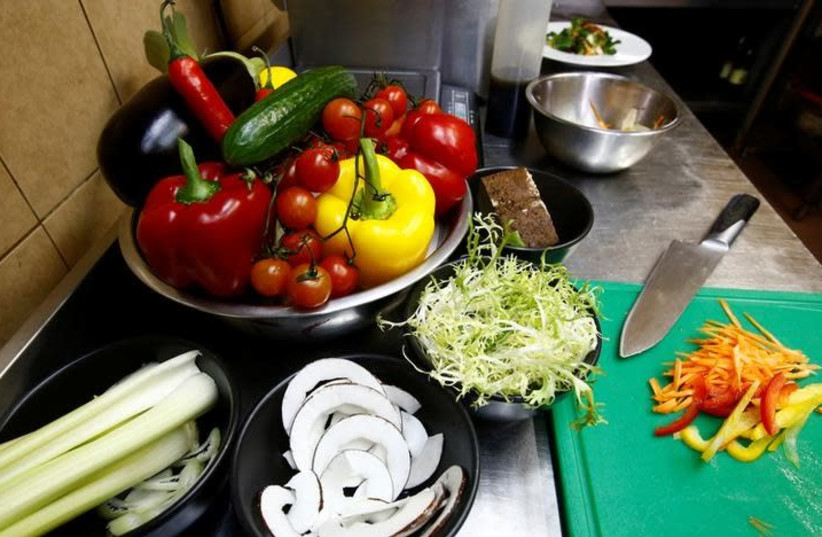Both men and women who are vegetarian are at a 50% greater risk of suffering a hip fracture compared to people who regularly eat meat, according to the results of a large-scale study at the University of Leeds in the UK.
It has been known that women who are vegetarian have an elevated risk of hip fracture, but the reasons why are unclear, and studies looking at the impact of a vegetarian diet on men have been small scale and inconclusive.
Global population growth and longevity increase the number of older adults worldwide, so the prevalence of chronic diseases including frailty, osteoporosis, and sarcopenia (the gradual loss of muscle mass) is therefore rising, thus increasing the risk of falls and fractures. Hip fractures result in a significant loss of independence and quality of life, risk of refracture, other chronic illnesses, and premature death. Many days of hospitalization after such a fracture comprise a significant economic burden to healthcare systems, so minimizing the risk of hip fracture is therefore a public health priority.
The British researchers analyzed data on more than 400,000 people – both men and women – and found that they provide the first indication that vegetarian men also face a greater risk of hip fracture than men who regularly eat meat. It also identifies some of the factors that may be putting vegetarians – both male and female – at increased risk.
They published their findings under the title “Risk of hip fracture in meat-eaters, pescatarians, and vegetarians: a prospective cohort study of 413,914 UK Biobank participant” in the BMC Medicine.

How do vegetarian diets lead to higher risk of hip fractures?
James Webster, a doctoral researcher at the university’s School of Food Science and Nutrition who led the study, said: “Hip fractures are a growing problem in an ageing society, and can trigger debilitating health conditions and a loss of quality of life. This study shows that while vegetarians face a greater risk of hip fracture than meat-eaters, this translates to three more hip fractures per 1,000 people over 10 years. The health benefits of a vegetarian diet, including a lower risk of cancer and cardiovascular disease, may still outweigh any increases in hip fracture risk. Our analysis suggests that low body-mass index (BMI) may be a key factor in why their risk is higher.”
Recruited between 2006 and 2010, the individuals in the study – all part of the UK Biobank project – supplied information on their diet and were categorized as either a regular meat eater who consumed meat five or more times a week; an occasional meat eater eating meat fewer than five times week; a pescatarian who they ate fish but not meat; or a vegetarian who ate dairy foods but no fish or meat. The data on the individuals was linked to their hospital records and a cases of hip fracture were recorded in the follow-up period to 2021.
Among the 413,914 participants, there were 3503 cases of hip fracture, which was an overall incidence rate of less than one percent (0.8%). Although the overall risk of having a hip fracture was low, the relative risk between vegetarians and regular meat eaters was large. The researchers found that vegetarians had a 50% greater risk than regular meat-eaters, regardless of gender; that there was no difference in risk between occasional and regular meat-eaters; and that pescatarians had a slightly greater risk (8%) than regular meat-eaters, but this was not a significant difference.
The scientists calculated how these relative differences may translate to real-world cases. They predicted that on average, 6.5 regular meat eaters and 6.5 occasional meat eaters would experience a hip fracture and that there would be seven cases among pescatarians and 9.5 cases among vegetarians.
In addition, Webster said, vegetarians were about 17% less likely to meet protein recommendations than meat-eaters. “So, important messages from our study are that vegetarians need to ensure they are getting a balanced diet with enough protein and maintain a healthy BMI. This will help vegetarians to maintain healthy bones and muscles.”
